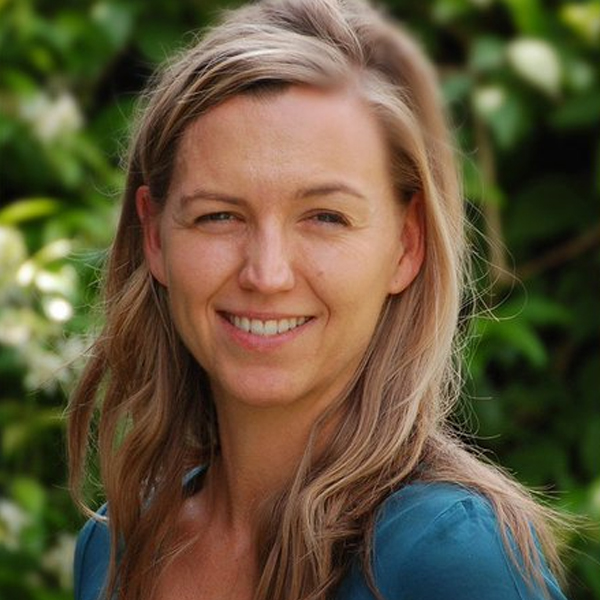Prof. dr. Caroline Goukens
Prof. dr. Caroline Goukens, Consumer Decision Making, works in the Department of Marketing and Supply Chain Management. She holds a Master’s degree (2003) and a PhD (2007) in applied economics from the KU Leuven. She studies consumer behaviour and behavioral decision theory. She combines laboratory and field studies with fMRI research, to study the factors that influence people’s choices and decisions. She has published her work in top scientific marketing journals.
CAROLINE GOUKENS: A PROFESSOR LOOKS BACK
Caroline Goukens (1980) is a Professor of Consumer Behaviour in the department of Marketing and Supply Chain Management at Maastricht University’s School of Business and Economics (SBE). She takes part in the special MaastrichtMBA programme, teaching two sessions in Human Decision Making in the Sustainable Competitive Advantage module.
Caroline’s aim is to learn and understand human behaviour in terms of the decisions we make. One of her goals in teaching the module is to help people understand themselves better by understanding their own choices. That can involve seemingly simple issues: why we choose to eat junk food when we know we ought to watch our diet, or why we might have difficulty investing our money because we feel we are losing control over it.
Caroline earned a PhD in Consumer Behaviour at KU Leuven. Perhaps one fortuitous aspect of her study programme was the fact that, although she was working on a degree in Economy, both of her PhD supervisors were psychologists. That suited her well and gave her the focus that she now employs in the classroom.
WHY MAASTRICHT?
It was not an obvious move to come to Maastricht University because there was not a lot of interest in her subject at that time. In that sense, she faced something of a challenge. But Caroline chose Maastricht because the university offered a good balance between research and teaching.
“One more thing – and it’s not unimportant – Maastricht is a great city.”
THE PRIMITIVE BRAIN
Caroline’s research has led her to believe that between ninety and ninety-five percent of the decisions we make are based on habit or emotion. To that end, it is useful to understand our emotional makeup and – just as important – to understand the anatomy of the brain itself. We are working with the same brain that our ancestors had a hundred thousand years ago. Our brains are built to help us survive, they tell us to eat when we can, to choose between fight and flight. While these are all useful tools, they may not always serve us well in the modern day.
CONSCIOUS VERSUS UNCONSCIOUS
For instance, a long-standing question is how to teach people to eat more healthily. We now understand that it is more difficult to convince people to eat healthily simply because it is healthy. It is easier to teach basic, unconscious eating habits. We can do that by appealing to human emotions because we trust on them and we tend to rely on them whenever we can.
“Consumer behaviour lies at the interface between economy and psychology. For me, the bottom line is to learn how to better understand the person across from you. That can be a consumer, it can be a colleague, or your child, or your partner. What I want to understand is why these people act as they do. Why do they eat junk food when they know they shouldn’t? Why do they prefer brand-name medicine to the exact same generic medicine? Ultimately, there is no difference between intuitive and emotional decision-making. They are one and the same.”
SIMPLICITY
The idea of communicating simply flies in the face of how many people like to communicate. Caroline has noticed how many people believe they will command more respect – that others will find them more intelligent – if they use complex terminology. Big words and big ideas. “In fact people who do that are generally shooting themselves in the foot,” she says.
INTERNATIONAL
Caroline has been teaching in Maastricht for about ten years, now. One particular aspect that strikes her is the fact that the MaastrichtMBA programme is becoming increasingly international. At first, students came from the Netherlands, Germany, and Belgium. Now they hail from all corners of the world.
“The programme’s international growth really contributes to the general input. There are so many more and varied ideas and insights. I like that and I think it’s important. The more varied the audience is, the more interesting the discussions become. This year’s session was one of the most interactive that I’ve experienced.”
HUMAN DECISION MAKING – RATIONAL VERSUS EMOTIONAL
People like to think that we make conscious choices about everything – the people we choose as partners, or as colleagues, or the purchases we make. In fact, our choices are largely unconscious and emotional.
“We call them ‘intuitive’ choices but they’re emotional and there’s no difference. I start and finish my course with that message.”

